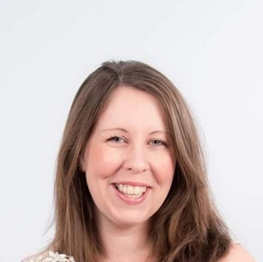IICSA Changemakers
(This IICSA Changemakers webpage is hosted and maintained by the NSPCC, but the work and ambitions belong to the IICSA Changemakers)
What is IICSA Changemakers?
The IICSA Changemakers are a group co-ordinated by the NSPCC. United across different sectors, including those with lived experience of child sexual abuse, they want to make sure that IICSA (The Independent Inquiry into Child Sexual Abuse), remains an important moment for child protection.
All members of the IICSA Changemakers wish to:
“inspire a national mission to prevent child sexual abuse and provide much improved support to victims and survivors”
Who are the IICSA Changemakers?
The IICSA Changemakers are a group of 65 members. These include charities, individuals, people with lived experience of chlid sexual abuse, support services and groups that work on the frontline and have experience of preventing and tackling sexual abuse.
All IICSA Changemakers members recognise the importance of working together to bring about change. We want the support and protection of children and people who have experienced sexual abuse, to be a larger priority for the public.
All organisations within the IICSA Changemakers, invest their time, expertise and access to networks to ensure the successful running of the group.
We are grateful for the financial support offered by the NSPCC, the Internet Watch Foundation, the Children’s Society and Barnardo's.
The NSPCC acts as a host for IICSA Changemakers, but all members participate equitably.
Changemaker Spotlights
During 2024 we will be sharing some short video interviews with members of IICSA Changemakers to help show the people behind the work and so the public and those who have lived experience of child sexual abuse, can have more transparent understanding of the IICSA Changemakers coalition.
Welcome to the first IICSA Changemaker Spotlight chat!
Today Denise (she/her) talks to Clare Kelly (she/her) about her role as Head of Programmes.
What areas of work do IICSA Changemakers focus on?
1. The voice of the survivor - the voices and experiences of people who have experienced child sexual abuse, were central to shaping IICSA's work and findings, and remain key as we continue.
2. Policy - hosting policy discussions on core IICSA recommendations and lobbying the government for better provision for children who have experienced sexual abuse. For example, the Victim's and Prisoner's Bill got IICSA's recommendation for a guarantee of specialist support for anyone who has experienced sexual abuse
3. Practice - looking at our own practices and understandings as a group that we can offer to others.
What we've done and where we're going
IICSA’s final report was published in October 2022 and called the nature and scale of child sexual abuse in England and Wales "horrific and deeply disturbing" and said institutions too often "prioritised their personal and institutional reputations above the welfare of those they were duty bound to protect”. It concluded that "child protection must be given a much greater priority in public life."
As IICSA has concluded, the IICSA Changemakers have come together and picked up the baton to ensure the evidence, research and findings from IICSA’s work were taken forward to help prevent child sexual abuse in the future.
In our first year the IICSA Changemakers have spoken collectively at numerous events explaining the need for collaboration and join up required across sectors and government departments to deliver the ambitions of the inquiry recommendation.
These conversations moved across the government at party conferences, parliamentarians at cross party events in Westminster as well as structured conversations with practitioners and academics at events such as CareKnowledge’s hosted webinars reaching over 600 individuals and organisations.
As a collective of 65 members, we have submitted consultation responses on mandatory reporting, the criminal compensation scheme and online harm regulations. Every consultation has sought to support the voice of people with lived experience of child sexual abuse from the existing IICSA work and drawing on current survivor networks supported across the IICSA Changemakers network. Changemakers work alongside organisations such as the ONS (Office for National Statistics) who are developing an improved data mechanism for capturing the scale and nature of abuse.
Moving forward, the plans for the year will focus on:
- responding to the Criminal Justice Bill and the Victims and Prisoner’s Bill,
- submitting to the consultation on the Victims Code of Practice,
- working to ensure that the government focuses on safeguarding as they bring in mandatory reporting,
- delivering on behalf of survivors who have not felt heard,
- and ensuring data drives decisions appropriately.
A comprehensive view of good practice in services is demonstrated to be achievable and support the delivery of public awareness campaigns, whilst ensuring the ambitions of IICSA and the IICSA Changemakers are explicitly clear to decision makers during election stages in 2024.
Survivor Advisory Community
The IICSA Changemakers Survivor Advisory Community is made up of individuals, over the age of 18, that have lived experienced of childhood sexual abuse and wish to help influence and shape the work of the IICSA Changemakers.
If you are interested in joining, please complete this form and send to [email protected].
Not everyone with lived experience of child sexual abuse will feel that participation work is helpful to their healing and thriving, so we encourage mindful and holistic consideration whilst exploring this decision.
If you are unsure or would like to talk more about what participation would look like, please contact Denise and she will be happy to have an open and informal conversation with you.
IICSA Changemakers events
Here you will find updates on events IICSA Changemakers members are attending, leading, facilitating or running.
Events coming soon
Publications from IICSA Changemakers
Getting in touch

Clare Kelly (she/her)
Head of Programmes

Denise Pringle (she/her)
Survivor Participation Manager



